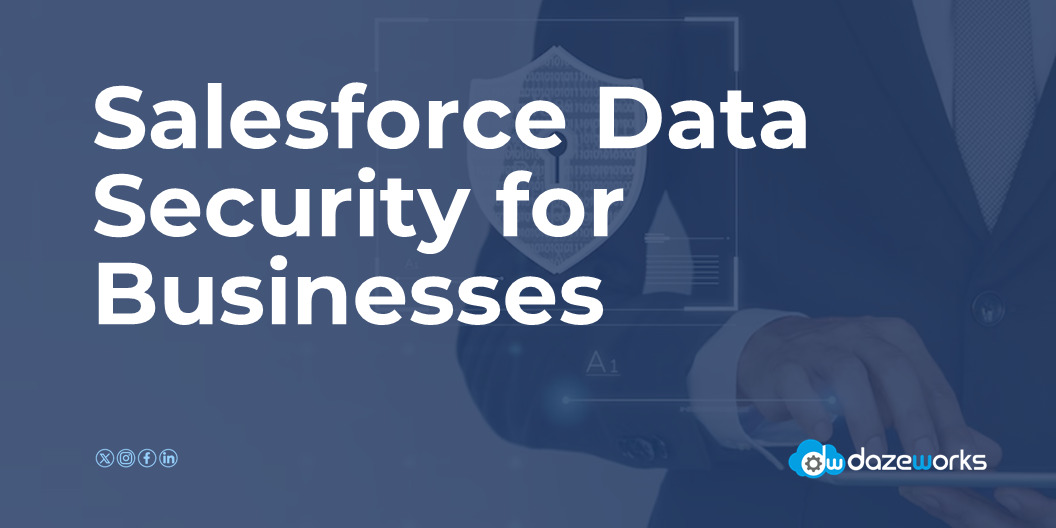
Salesforce Data Security for Businesses
minutes read
Data is considered the lifeblood of businesses, and safeguarding sensitive information has become paramount. With the increasing reliance on cloud-based solutions, Salesforce has emerged as a leader in customer relationship management (CRM) platforms. As businesses entrust their critical data to Salesforce, ensuring robust data security measures becomes a top priority.
Understanding the Importance of Salesforce Data Security
Salesforce is more than just a CRM tool; it’s a repository of invaluable business information, including customer details, sales transactions, and marketing strategies. Protecting this data is not just about compliance; it’s about maintaining trust with customers and safeguarding the organization’s reputation.
Key Components of Salesforce Data Security
- Authentication and Access Control: Implementing strong authentication mechanisms is the first line of defense. Multi-factor authentication (MFA) adds an extra layer of security, ensuring that only authorized personnel can access sensitive data. Additionally, defining and regularly reviewing user access permissions helps prevent unauthorized data exposure.
- Data Encryption: Salesforce employs robust encryption methods to protect data both in transit and at rest. Utilizing Transport Layer Security (TLS) for data in transit and Salesforce Shield for data at rest ensures that information remains confidential and secure.
- Regular Monitoring and Auditing: Establishing a comprehensive monitoring system helps identify unusual activities and potential security threats. Regularly auditing user activities and system logs enhances visibility into who is accessing data and what changes are being made, allowing for quick detection of any anomalies.
- Secure Development Practices: Adhering to secure coding practices is essential when customizing Salesforce applications. Conducting regular security reviews and incorporating secure coding principles during development prevents vulnerabilities that could be exploited by malicious actors.
- Backup and Recovery: Implementing a robust data backup and recovery strategy is crucial. Salesforce provides tools for regular backups, ensuring that in the event of data loss or a security incident, businesses can quickly restore their information and resume operations.
Compliance with Data Protection Regulations
Salesforce takes data security seriously and aligns its practices with various global data protection regulations. Businesses utilizing Salesforce benefit from a platform that complies with standards such as GDPR, HIPAA, and more. This helps avoid legal complications and establishes a foundation for trustworthy customer relationships.
Staying Proactive with Security Measures
Security is an ever-evolving landscape, and organizations must stay proactive in adapting to emerging threats. Salesforce offers regular security updates and patches, ensuring that the platform remains resilient against the latest vulnerabilities. Businesses should stay informed about these updates and promptly apply them to maintain the highest level of security.
Educating Users on Best Practices
Human error remains a significant factor in data breaches. Educating users on security best practices is crucial in maintaining a secure Salesforce environment. Training programs should cover topics such as creating strong passwords, recognizing phishing attempts, and understanding the importance of data confidentiality.
Conclusion
As businesses continue to leverage Salesforce for their CRM needs, prioritizing data security is non-negotiable. Salesforce’s robust security features, coupled with proactive measures taken by businesses, create a resilient defense against potential threats. By understanding the key components of Salesforce data security, staying compliant with regulations, remaining proactive with security measures, and educating users, businesses can confidently harness the power of Salesforce while safeguarding their most critical asset – data.
